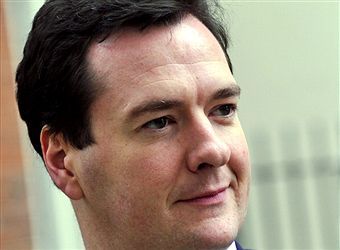 There were few surprises in yesterday’s Budget. As expected, it focused on growth
and the majority of the policies announced had been heavily trailed in the weekend newspapers. The fiscal picture did not change much. Potential over-optimism from the Office for Budget
Responsibility on inflation and the output gap aside, the Chancellor is still on course to eliminate the deficit by the end of this Parliament.
There were few surprises in yesterday’s Budget. As expected, it focused on growth
and the majority of the policies announced had been heavily trailed in the weekend newspapers. The fiscal picture did not change much. Potential over-optimism from the Office for Budget
Responsibility on inflation and the output gap aside, the Chancellor is still on course to eliminate the deficit by the end of this Parliament.
This is very good news. The biggest danger during a fiscal consolidation programme is that governments water down their proposals due to political opposition or economic difficulties. In a 2009 report, Controlling Spending and Government Deficits, Policy Exchange argued that the preferred ratio of spending cuts to tax increases is around 80:20. Yesterday’s Budget maintained this; and, in this respect, we congratulate the Chancellor for sticking to his guns. Because of these decisions, spending is on course to be reduced to around 40 percent of GDP by 2015 and this will help the long-term growth rate of the economy.
A raft of planning reforms, building on Policy Exchange proposals, was also announced. These included consulting on reforms to allow conversion of commercial premises to housing and a new commitment that the default answer to development should be yes, rather than no. These policies should help to free up our planning system and produce more and better development. Policy Exchange has also argued for the introduction of a carbon floor price and the relaxation of restrictive health and safety legislation. So, reforms in these areas should also be applauded. After our comments on the negative growth impacts of previous rises in the personal allowance being funded by bringing more people into the higher rate of income tax, we were also relieved to see that the Budget’s rise in the personal allowance will not increase the number of higher rate taxpayers.
However, Osborne has made some enemies with his deficit reduction measures. Oil companies will be feeling bruised about the new levy on North Sea production, families near the low end of the 40 percent tax bracket will not be happy that their child benefit is still on course to disappear, and greens will fear that the carbon price is set to herald a “dash-for-nuclear”.
Even those who have been pleased with the approach thus far will be uncertain about future growth potential. The Chancellor claimed to be scrapping 43 tax reliefs and reducing the tax code by 100 pages; but, alarmingly, he announced 57 separate new policy decisions. Combine those with the number of pre-announced policy measures coming into force after April 2011 and the economy will see 138 separate policy changes over the next five years.
This is indicative of the government’s latest problem. The large number of targeted proposals hints at an attempt to carry on micro-managing the economy, rather than encouraging organic growth. The creation of 21 Enterprise Zones is a case in point. With total expenditure of just over £200 million over the next five years, the real question is why you would have zones when you can roll these sorts of policies out across the UK? Simplifying the planning system is a cheap and effective way to encourage growth everywhere – not just in small zones. The government showed a good deal of discipline in this Budget in terms of spending – now it needs to show the same discipline in not meddling in the economy. Long-term structural reforms are the way to prosperity.
Matt Oakley is Head of Enterprise, Growth and Social Policy at Policy Exchange






Comments